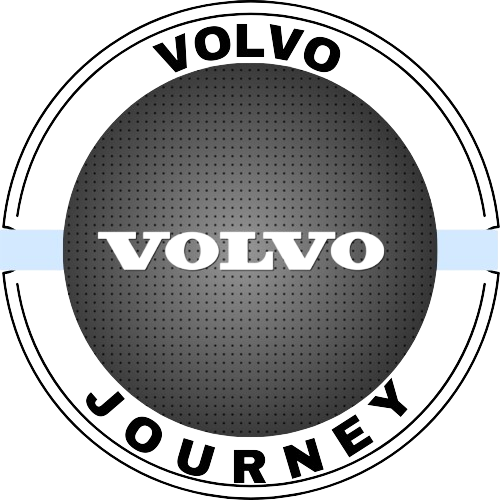Volvo is a name that resonates with quality, safety, and innovative engineering in the automotive industry. Behind every successful automaker is a robust governance structure, and at the heart of Volvo’s continued excellence lies its board of directors. In this article, we will delve deep into the role, structure, and influence of the volvo board of directors, exploring how they steer the brand toward sustainable growth, strategic innovation, and operational excellence.
Introduction
Volvo has long been associated with values such as safety, environmental care, and reliability. With a heritage spanning decades, the brand has continuously evolved by adapting to new technologies and market dynamics. At the strategic helm of these developments is the board of directors, a body of seasoned professionals responsible for making critical decisions that shape the company’s future. Understanding the composition and responsibilities of the volvo board of directors offers insight into the strategic direction and the operational backbone of the brand.
This article aims to provide a comprehensive look into how the board of directors operates, the skills and experiences they bring to the table, and how their leadership underpins Volvo’s market reputation. Whether you are an automotive enthusiast, an investor, or simply curious about corporate governance in the automotive sector, this exploration will offer a detailed view of the power behind the brand.
The Role of the Board of Directors in Volvo
Strategic Oversight and Decision-Making
At its core, the board of directors is tasked with setting the strategic direction of the company. For Volvo, this means:
- Defining Long-Term Vision: The board is responsible for establishing the long-term goals and objectives of the company, ensuring that every decision aligns with Volvo’s core values and mission.
- Risk Management: By identifying potential risks—whether they are related to market fluctuations, regulatory changes, or technological disruptions—the board ensures that Volvo remains resilient in the face of challenges.
- Corporate Governance: The board oversees corporate governance practices, ensuring transparency, accountability, and adherence to ethical standards. This is critical in maintaining investor confidence and regulatory compliance.
Enhancing Corporate Performance
The volvo board of directors is instrumental in driving corporate performance. Their responsibilities include:
- Financial Oversight: Monitoring the company’s financial health is a key role. The board reviews financial statements, budgets, and forecasts to ensure that the company’s resources are allocated effectively.
- Innovation and Technology: In an era where automotive technology is rapidly evolving, the board plays a critical role in guiding Volvo’s investments in research and development. This includes strategic decisions about electrification, autonomous driving, and sustainable manufacturing practices.
- Stakeholder Engagement: Effective governance involves balancing the interests of various stakeholders, including employees, customers, shareholders, and the wider community. The board ensures that these relationships are nurtured and maintained.
The Impact on Volvo’s Market Position
Volvo’s reputation for safety, innovation, and reliability is not just the product of advanced engineering—it is also the result of sound corporate governance. The board’s commitment to strategic planning, risk management, and continuous improvement directly impacts Volvo’s ability to compete in a global market. Their efforts ensure that the company remains at the forefront of the automotive industry while adhering to stringent standards of quality and sustainability.
Composition of Volvo’s Board of Directors
Diverse Expertise and Global Representation
One of the strengths of the volvo board of directors is its diversity in expertise and global representation. The board typically comprises individuals with backgrounds in various fields such as finance, technology, engineering, marketing, and law. This multidisciplinary approach is essential for addressing the complex challenges faced by a modern automaker.
- Industry Experts: Many board members have extensive experience in the automotive sector. Their industry-specific knowledge helps in anticipating market trends and technological advancements.
- Financial Leaders: Experts in finance and corporate management bring valuable insights into cost management, investment strategies, and financial planning.
- Technology and Innovation Specialists: With the automotive industry increasingly driven by technology, having members who understand digital transformation and innovation is crucial.
- International Experience: Volvo’s global operations require a board that is comfortable navigating diverse regulatory environments and cultural contexts. This international perspective helps in formulating strategies that are effective across multiple regions.
Board Structure and Governance
The structure of Volvo’s board of directors is designed to support effective governance and decision-making. Some key features include:
- Committees: The board is often divided into specialized committees, such as the audit committee, the remuneration committee, and the nomination committee. Each committee focuses on specific areas, ensuring detailed oversight and accountability.
- Regular Meetings: The board convenes regularly to review the company’s performance, assess strategic initiatives, and address emerging challenges. These meetings foster an environment of continuous dialogue and collaboration.
- Independent Directors: A significant proportion of the board consists of independent directors. Their impartial perspective is invaluable for unbiased decision-making and ensures that the interests of all stakeholders are considered.
Profiles of Key Board Members
While the specific composition of the board may change over time, a few core profiles provide an insight into the type of leadership that Volvo embraces. These profiles often include a mix of seasoned industry veterans and innovative thinkers, each contributing uniquely to Volvo’s success.
The Chairperson
The Chairperson of the board plays a pivotal role in guiding board discussions, setting agendas, and ensuring that the board operates efficiently. They are responsible for:
- Leading Strategic Discussions: The Chairperson helps steer conversations towards long-term strategic goals, ensuring that discussions are focused and productive.
- Facilitating Collaboration: By fostering an atmosphere of open dialogue, the Chairperson encourages the free exchange of ideas among board members.
- Representing the Board: In dealings with external stakeholders, the Chairperson serves as the primary spokesperson, reflecting the board’s decisions and the company’s strategic vision.
The Chief Executive Officer (CEO)
Often, the CEO is an integral member of the board, providing insights into the company’s day-to-day operations and strategic challenges. Their role includes:
- Bridging Strategy and Execution: The CEO ensures that the board’s strategic directives are translated into actionable plans across the company.
- Operational Oversight: By managing the company’s operations, the CEO offers the board a realistic perspective on the feasibility and progress of strategic initiatives.
- Stakeholder Communication: The CEO plays a key role in communicating with employees, customers, and investors, ensuring that the board’s vision is clearly understood and implemented.
Financial and Strategic Advisors
Board members with a background in finance and strategic planning are crucial for Volvo’s fiscal health. They are tasked with:
- Budgetary Oversight: Ensuring that the company’s financial plans are robust, realistic, and aligned with strategic goals.
- Investment Decisions: Advising on capital allocation and investment strategies, particularly in areas like innovation and market expansion.
- Performance Metrics: Developing and monitoring key performance indicators (KPIs) that drive the company towards operational excellence.
Technology and Sustainability Experts
Given the rapid evolution of automotive technology and the growing emphasis on sustainability, experts in these fields are increasingly represented on the board. Their responsibilities include:
- Innovation Leadership: Steering investments in emerging technologies such as electric vehicles, autonomous systems, and connected car platforms.
- Environmental Stewardship: Ensuring that Volvo’s operations adhere to stringent environmental standards and contribute to a sustainable future.
- Regulatory Compliance: Keeping the board informed about changes in environmental regulations and guiding the company’s compliance strategies.
The Influence of Volvo’s Board on Company Strategy
Steering Technological Innovation
The automotive industry is undergoing a significant transformation, driven by advancements in digital technology and the shift towards electrification. The volvo board of directors plays a critical role in steering these changes by:
- Investing in Research and Development: Board members advocate for sustained investment in R&D, which is essential for developing innovative products and maintaining a competitive edge.
- Forging Strategic Partnerships: To leverage cutting-edge technology and expand market reach, the board supports collaborations with tech companies, research institutions, and other industry leaders.
- Embracing Digital Transformation: The board’s focus on digital innovation has led to the integration of smart technologies in Volvo vehicles, enhancing safety features, connectivity, and user experience.
Driving Sustainable Business Practices
Sustainability has become a cornerstone of Volvo’s brand identity. The board’s commitment to environmental stewardship is evident in the company’s strategic initiatives, which include:
- Electrification of the Fleet: One of the board’s major strategic directions has been the transition towards electric vehicles. This involves not only the development of electric drivetrains but also the creation of a sustainable supply chain.
- Carbon Neutrality Goals: The board has set ambitious targets for reducing greenhouse gas emissions, aligning with global efforts to combat climate change.
- Resource Efficiency: By promoting efficient manufacturing processes and the use of renewable energy, the board ensures that Volvo’s operations minimize environmental impact while maintaining high production standards.
Enhancing Global Competitiveness
Volvo operates in a highly competitive global market, where strategic decisions can significantly influence market share and brand perception. The board’s influence in this arena includes:
- Market Expansion Strategies: The board evaluates opportunities for entering new markets and diversifying the company’s product portfolio to meet the evolving demands of consumers.
- Brand Positioning: Decisions regarding marketing, product development, and customer engagement are made with a long-term view of sustaining Volvo’s reputation for quality and innovation.
- Crisis Management and Adaptability: In times of economic uncertainty or market disruption, the board’s ability to quickly adapt strategies is critical. Their proactive approach to risk management helps the company navigate turbulent periods while safeguarding shareholder value.
Corporate Governance and Ethical Standards
Commitment to Transparency
Transparency is a fundamental principle of effective corporate governance. The volvo board of directors is committed to maintaining open communication channels with all stakeholders. This is achieved through:
- Regular Reporting: Detailed financial and operational reports are shared with investors and regulatory bodies to ensure that all decisions and outcomes are transparent.
- Stakeholder Meetings: The board frequently engages with shareholders, employees, and community representatives, fostering an environment where feedback is valued and considered in strategic decisions.
- Ethical Guidelines: Strict ethical guidelines govern the behavior of board members, reinforcing a culture of integrity and accountability across the organization.
Balancing Interests
The board must carefully balance the sometimes competing interests of various stakeholders. This involves:
- Shareholder Value: Ensuring that decisions contribute to long-term shareholder value while avoiding short-termism.
- Employee Welfare: Recognizing that the strength of the company lies in its people, the board supports initiatives that foster a positive work environment and encourage professional growth.
- Community Engagement: Volvo’s board emphasizes corporate social responsibility by investing in community projects and sustainable practices that benefit society at large.
Regulatory Compliance and Risk Mitigation
In today’s complex regulatory environment, compliance is paramount. The board is responsible for:
- Ensuring Adherence to Laws: The board oversees compliance with international, national, and local regulations, ensuring that the company operates within legal boundaries.
- Implementing Risk Mitigation Strategies: By proactively identifying risks—be they financial, operational, or reputational—the board devises strategies to mitigate potential negative impacts.
- Internal Audits and Oversight: Regular internal audits and reviews are conducted to assess the efficacy of corporate controls and governance practices, ensuring continuous improvement in risk management.
The Future Outlook: Board’s Strategic Priorities
Embracing Technological Disruption
As the automotive industry evolves, the volvo board of directors continues to prioritize technological innovation. Their strategic priorities include:
- Integration of Artificial Intelligence: Incorporating AI and machine learning into vehicle systems to enhance safety, performance, and user experience.
- Expansion of Autonomous Technologies: Investing in the development of self-driving vehicles and smart mobility solutions that promise to revolutionize urban transportation.
- Enhancing Cybersecurity: With increasing vehicle connectivity, safeguarding digital systems against cyber threats has become a top priority for the board.
Commitment to Sustainability
Volvo’s board remains steadfast in its commitment to environmental sustainability. Future initiatives are likely to focus on:
- Advancing Electric Mobility: Accelerating the shift toward fully electric vehicles by investing in battery technology, charging infrastructure, and sustainable materials.
- Achieving Carbon Neutrality: Continuously refining operational processes and supply chain management to reduce carbon emissions and achieve long-term sustainability goals.
- Promoting Circular Economy Practices: Encouraging recycling and the efficient use of resources, thereby reducing waste and environmental impact throughout the vehicle lifecycle.
Global Market Adaptation
To remain competitive in an ever-changing global market, the board is expected to:
- Explore New Markets: Identify and tap into emerging markets where demand for high-quality, safe, and sustainable vehicles is growing.
- Adapt to Local Regulations: Develop localized strategies that address regional regulatory requirements, cultural nuances, and consumer preferences.
- Strengthen International Partnerships: Form strategic alliances with global technology and manufacturing partners to enhance innovation and operational efficiency.
The Significance of Board Dynamics in Volvo’s Success
Collaboration and Collective Expertise
The success of Volvo is intricately linked to the dynamics within its board of directors. The collaboration among diverse experts allows for:
- Comprehensive Decision-Making: By leveraging the collective expertise of board members, Volvo is better positioned to make decisions that are both innovative and pragmatic.
- Agility in Strategy Implementation: The collaborative approach ensures that strategic directives are not only well-conceived but are also effectively implemented across the organization.
- Resilience Against Market Shifts: A united board can respond more swiftly to market changes and unexpected challenges, ensuring that the company maintains its competitive edge.
Fostering a Culture of Innovation and Responsibility
The board’s influence extends beyond boardroom decisions to the broader organizational culture. Their commitment to innovation, ethical conduct, and sustainability inspires the company at all levels. Employees at Volvo benefit from clear strategic guidance and a strong ethical framework, fostering a workplace culture that values creativity, accountability, and continuous improvement.
Ensuring Long-Term Stability
Stability is a crucial element for any successful automotive brand. Through sound governance practices and strategic foresight, the volvo board of directors plays a key role in ensuring the company’s long-term stability. Their emphasis on sustainable growth, coupled with proactive risk management, safeguards Volvo’s market position for future generations.
The Broader Implications for the Automotive Industry
Setting a Benchmark for Corporate Governance
Volvo’s board of directors is often cited as a model for effective corporate governance within the automotive sector. Their approach underscores the importance of:
- Diverse Expertise: Bringing together professionals from varied backgrounds to create a well-rounded and adaptable leadership team.
- Ethical Practices: Upholding transparency, accountability, and ethical behavior as core principles that drive long-term success.
- Strategic Adaptability: Balancing tradition with innovation, ensuring that the company remains agile in the face of evolving market conditions.
Influence on Industry Standards
The governance practices championed by Volvo’s board have ripple effects across the automotive industry. As other companies seek to emulate Volvo’s success, there is a growing trend toward more rigorous and transparent board structures. This shift not only enhances overall industry standards but also fosters greater investor confidence and consumer trust.
Encouraging Sustainable Innovation
By prioritizing sustainability and technological advancement, Volvo’s board has set a precedent for integrating environmental and digital innovation into the core of automotive business strategies. This approach encourages other automakers to invest in green technologies and digital solutions, contributing to a more sustainable and innovative industry overall.
Conclusion
The volvo board of directors represents the unseen force that drives Volvo’s strategic decisions and shapes its future in the global automotive landscape. Through a blend of diverse expertise, collaborative decision-making, and an unwavering commitment to ethical governance, the board has positioned Volvo as a leader in innovation, safety, and sustainability.
From setting long-term visions and managing risks to driving technological advancements and championing environmental sustainability, the board’s influence permeates every aspect of the company’s operations. This comprehensive governance structure not only ensures that Volvo remains competitive in a rapidly evolving industry but also inspires confidence among investors, employees, and customers alike.
As Volvo continues to navigate the complexities of modern automotive challenges—be it through advancements in electric mobility, the integration of autonomous technologies, or the pursuit of sustainable practices—the board remains the cornerstone of strategic stability and innovation. Their leadership exemplifies how effective corporate governance can drive operational excellence and ensure long-term success in an increasingly dynamic global market.
In essence, the story of Volvo’s success is a testament to the power of a well-structured, forward-thinking board of directors. Their ability to harmonize diverse perspectives, balance immediate operational needs with long-term strategic goals, and consistently uphold the highest standards of corporate governance makes them the true power behind the Volvo brand. This insight into the inner workings of Volvo’s board not only enhances our understanding of the company’s success but also serves as a blueprint for governance best practices within the automotive industry and beyond.
By exploring the roles, responsibilities, and achievements of the volvo board of directors, we gain a deeper appreciation for the intricate relationship between strong leadership and corporate excellence. As the automotive landscape continues to evolve, Volvo’s commitment to innovation, sustainability, and transparent governance, championed by its board, will undoubtedly remain a critical factor in its ongoing success.




